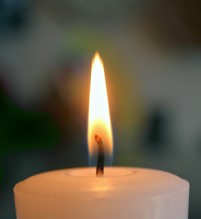It boils off into the air, where it came from.
We get liquid nitrogen by compressing and cooling air. Air is mostly nitrogen. The oxygen in the air becomes a liquid at a higher temperature than nitrogen, so it liquefies first, and boils off last, when we liquefy air. When we remove the gases that liquefy first, what is left is almost pure nitrogen.
Liquid nitrogen boils at -320 degrees Fahrenheit. So having a bowl of liquid nitrogen in your kitchen is like having a bowl of water in an oven at 600 degrees. The water would boil away. But as long as there was water left in the bowl, the water itself would still only be at a temperature of 212 degrees – the boiling point.
The same thing happens with liquid nitrogen. As long as there is liquid in the bowl, it cannot get hotter than the boiling point. So anything we put in the liquid will be cooled to the boiling point of the liquid.
When we put a rose into liquid nitrogen, the liquid vigorously boils around the rose, since the rose is 400 degrees hotter than the liquid’s boiling point. The rose transfers its heat to the nitrogen, until they are both at the same temperature — -320 degrees.
At that temperature, the water in the rose petals is frozen solid. The petals become as brittle as thin sheets of glass. If we drop the rose onto the table before the air can melt the ice, the rose will shatter into hundreds of tiny shards. But we have to act quickly – the air is 400 degrees hotter than the rose petals, and can melt the ice quickly.
